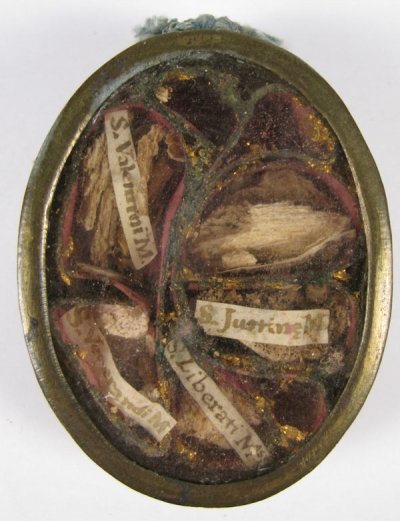Saint Justina of Antioch († 304 AD) is a Christian martyr saint, known for converting Cyprian, a pagan magician of Antioch. Justina was said to have been a young woman who took private vows of chastity. A would-be suitor sought a magic spell to induce Justina to marry him. The charms had no effect on Justina, who spent her time in prayer and fasting. Brought to despair, Cyprian made the sign of the cross himself and in this way was freed from the toils of Satan. He was received into the Church, was made pre-eminent by miraculous gifts, and became in succession deacon, priest and, finally, bishop, while Justina became the abbess of a convent. During the Diocletian persecution, both were seized and taken to Damascus, where they were tortured. As their faith never wavered, they were brought before Diocletian at Nicomedia, where at his command they were beheaded on the bank of the river Gallus. The relics of Saint Justina of Antioch rest in the Church of Saint Anthony, in Lisbon, after being transferred from St. Lawrence's Cemetery in Rome by Pope Pius VI in 1777. Her feast day is commemorated by the Catholic Church on September 26 and on October 2 by the Eastern Orthodox Church.
Saint Liberates, Martyr was Abbot of the monastery of Gafsa, Tunisia, who with six other monks were taken prisoner by the Vandal king, Hunneric. Efforts were made, in vain, to have them renounce the faith. They were then ordered to be burned alive but when it proved impossible to set the wood of their funeral pyre afire, they were clubbed to death.
Saint Venerandus of Troyes (modern France), Martyr under the emperor of Aurelian
Saint Valentine of Rome, was a Christian priest and Martyr who died on the Via Flaminia in the time of the emperor Claudius. After having cured and instructed many persons he was beaten with clubs and beheaded. He is
commemorated on February 14 and since the High Middle Ages is associated with a tradition of courtly love.









 Поменять язык на русский
Поменять язык на русский 